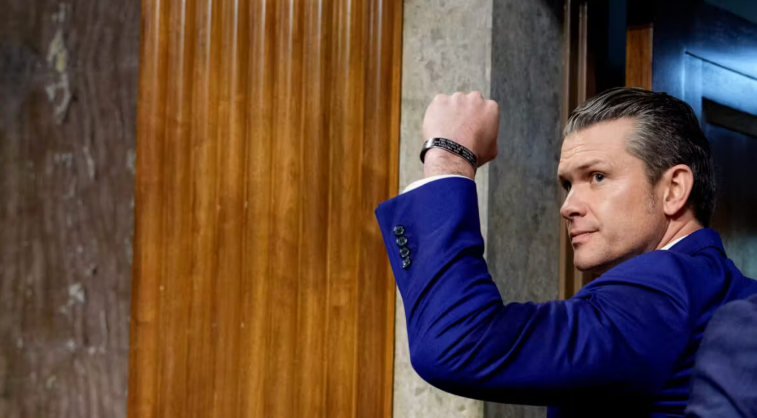Hegseth Shrugs Off Legacy Media Backlash Over New Pentagon Press Policy
War Secretary Pete Hegseth isn’t losing sleep over a wave of establishment media outlets refusing to comply with the Pentagon’s new press access guidelines — dismissing their outrage with a simple wave emoji and a reminder: “Pentagon access is a privilege, not a right.”
The new policy, announced in a late-May memo, requires all reporters issued a Pentagon Facility Alternate Credential (PFAC) to sign a revised in-brief form. It outlines information security rules, physical access controls, and what the Department of War calls “expectations of compliance” for safety and security on the grounds.
The goal? Bring the Pentagon’s press policy in line with every other U.S. military base — a move Hegseth says is long overdue. But several high-profile media outlets are crying foul, accusing the Trump administration of restricting press freedom and violating the First Amendment.
Legacy Media Cries Censorship — Hegseth Responds: Bye
The Washington Post, New York Times, The Atlantic, CNN, and others issued stern statements on Monday vowing that their journalists will not sign the new policy agreement.
“The proposed restrictions undercut First Amendment protections,” claimed Washington Post Executive Editor Matt Murray. The New York Times accused the Trump administration of trying to “punish journalists for ordinary news gathering.”
Hegseth responded to their outrage with zero apologies — literally replying to each outlet’s statement with a waving hand emoji.
Later, he elaborated: “Press no longer roams free; Press must wear visible badge; Credentialed press no longer permitted to solicit criminal acts. DONE. Pentagon now has same rules as every U.S military installation.”
He added, “This is about security, not censorship.”
Right-Leaning Outlets Also Express Concern — But Hegseth Holds Line
Even some conservative-leaning outlets expressed skepticism over the new rules. Newsmax released a statement saying they’re working with others to “resolve the situation,” calling the policy “unnecessary and onerous.” The Wall Street Journal and Washington Examiner voiced similar objections.
Still, Hegseth isn’t backing down. His view is simple: The Department of War is not a free-for-all for activist journalists, and the days of unmonitored press wandering the Pentagon halls are over.
“Freedom of the press does not mean unrestricted access to the most sensitive military command center on Earth,” a Defense Department spokesperson added anonymously.
Policy Details: What’s Changing?
Under the new guidelines:
-
All press must wear a visible credential at all times.
-
Access is limited to credentialed areas.
-
Journalists are barred from encouraging criminal acts — a clause interpreted as a response to past instances of Pentagon leaks and selective editing of defense briefings.
Critics argue the language is too broad and could be used to punish whistleblowers or chill investigative reporting.
Hegseth’s team counters that the Pentagon has already been targeted by foreign intel services, ideological agitators, and media operatives with political agendas — and that ensuring operational security is now non-negotiable.
The Showdown Continues
With the Biden-aligned press corps digging in and the Trump administration doubling down, the standoff over Pentagon press access is shaping up to be a First Amendment flashpoint ahead of 2026.
As Hegseth put it: “If you won’t follow the same rules as everyone else on a military base, then you won’t be on this one either.”

